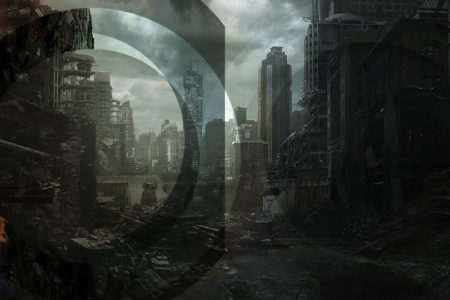Preparing for War
As tensions rise along the Lebanese-Israeli border, Israeli Defense Minister Avigdor Lieberman has warned that the next war between Hezbollah and Israel will include Syria. “In anything that transpires, it will be one theater,” he said. “Syria and Lebanon together, Hezbollah, the Assad regime and all of the Assad regime’s collaborators,” he said.
Lieberman added that Israel believes Hezbollah—the Iran-backed, Lebanese Shiite militia—has gained control over the U.S.-backed Lebanese army and signaled that both would be in Israeli sights in any future war. “We are no longer talking about Hezbollah alone,” he said. “We are talking about Hezbollah and the Lebanese army, and to my regret this is the reality. The Lebanese army has turned into an integral part of Hezbollah’s command structure. The Lebanese army has lost its independence and become an inseparable part of the Hezbollah apparatus.”
Israel last fought a war against Hezbollah in 2006. Since then, Hezbollah has increased the size and sophistication of its arsenal and reinforced its positions along the “Blue Line” dividing Israel and Lebanon. Israeli military officials say Hezbollah has built a stockpile of more than 120,000 rockets, including many that can reach far into Israel.
Hezbollah has also gained combat experience, especially in offensive warfare, by fighting alongside Syrian President Bashar al-Assad against an array of Sunni Muslim insurgents. Although many of its fighters have died in the conflict, Hezbollah appears to have emerged stronger and bolder than ever.
Israel has also built up its arsenal and obtained top-of-the-line missile-defense systems, such as the Iron Dome. Israel recently held its largest military exercise in almost 20 years to prepare for a potential war with Hezbollah. Tens of thousands of soldiers from different branches of the Israel Defense Forces—including the army, air force, and navy, as well as intelligence and cyber command—participated in drills in the Golan Heights, simulating scenarios Israel can expect in the next confrontation with Hezbollah.
“Israel will defend itself with the full force of our arms and the full power of our convictions,” Prime Minister Benjamin Netanyahu told a UN General Assembly meeting in New York. “We will act to prevent Iran from establishing permanent military bases in Syria for its air, sea, and ground forces. We will act to prevent Iran from producing deadly weapons in Syria or in Lebanon for use against us.”
Hezbollah leader Sayyed Hassan Nasrallah has warned that any future conflict between Hezbollah and Israel could quickly expand into a larger regional war. “If an Israeli war is launched against Syria or Lebanon, it is not known that the fighting will remain Lebanese-Israeli, or Syrian-Israeli,” Nasrallah said. “This could open the way for thousands, even hundreds of thousands of fighters from all over the Arab and Islamic world to participate—from Iraq, Yemen, Iran, Afghanistan and Pakistan,” he added.
How does Russia—a strategic ally of Hezbollah, Iran, and the Assad regime—factor into the equation? Writing in Foreign Affairs, Dmitry Adamsky, one of Israel’s leading experts on Russian strategic thinking, predicted that the Kremlin probably would exploit such a war to improve its position and influence in the wider Middle East: “If conflict breaks out between Israel and Hezbollah, Moscow would probably let Hezbollah and Iran bleed in order to weaken their regional positions. But it would also seek to prevent a total Israeli victory, since it still needs Hezbollah as a strategic actor in the region, and because doing so could demonstrate to Israel the limits of its power. By settling the conflict and restoring the status quo ante bellum, Russia could validate that it matches or exceeds the United States as a force in the Middle East.”









In all of this, we must not forget that God will be the one who has the controls. How it shapes up and concludes is up to Him. He has given us the bible which shows the beginning and the end. He will fight for his people.